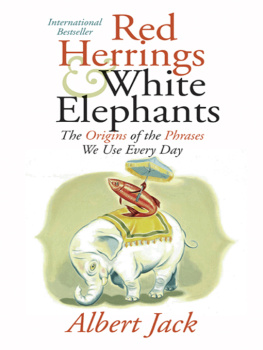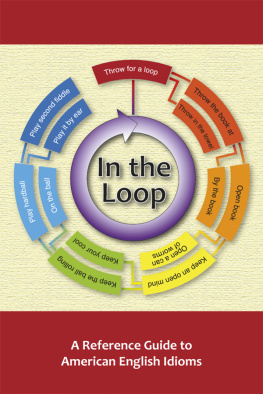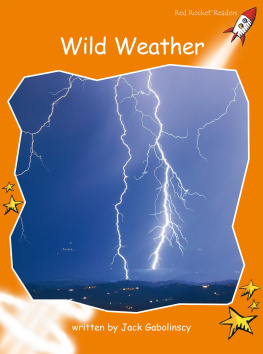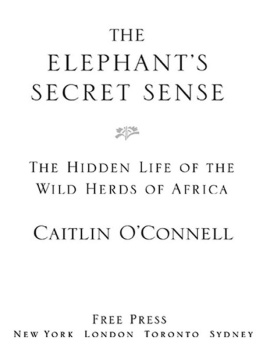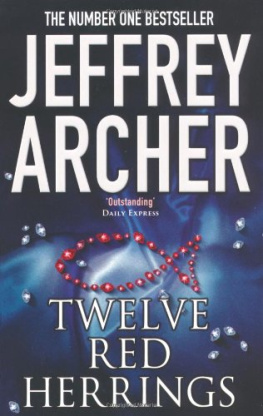In the course of a day, we all use many examples of what is known as an idiom. Idioms are words and phrases which those of us with a native English tongue take for granted, as we have grown up to recognise their meaning. That is despite the words being used having absolutely nothing to do with the context of a conversation we are having.
For example, if I explained I am writing this preface off the cuff, you would immediately recognise it as an unprepared piece being written in one take (which, by the way, it is). But why do I call that off the cuff when it has nothing to do with my cuffs, much less being either on or off them?
If I suggest everything in this book is absolutely true, I can emphasis that statement by insisting every word in here is straight from the horses mouth. Again, we all know that means it has come directly from the source of information and is therefore reliable. But I havent got a horse. I have never spoken to one and unless I can find one that wins more often, even when I hedge my bets, then I might have nothing to do with any of the beasts again.
These phrases appear in conversation all over the English-speaking world every minute of the day and we take them for granted. Have you ever heard someone say they had a bone to pick with you or they could smell a rat? Have you wondered what on earth they were talking about? No, probably not, because we all grow up knowing what these phrases refer to, but, if you were overheard by anyone learning our beautiful language, theyd think we were all mad.
However, have you ever wondered where those phrases come from in the first place and why we use them? I did, when I was sitting in a pub with a friend, who was feeling a little groggy and under the weather, as he had been out painting the town red the previous night. I suggested a hair of the dog was in order and the bar-person, who was an English student from Colombia, and a very good one at that, thought we were crazy. She told us dogs werent allowed in the pub. How we all laughed.
It was wintertime, and cold enough to freeze the balls off a brass monkey, so cold, in fact, I believe it was snowing in the ladies. So we sat by the fire, hair of the dog in hand, and started wondering where those sayings originated and why they are so natural to use. The pubs guvnor eventually fetched us up a square meal, but wed been there a while and before we all reached the end of our tethers I decided to leave for home. It was raining cats and dogs outside, so I bit the bullet and made my way through the cold and started researching these little phrases. Within minutes I had discovered that many of them do have traceable origins and some even emerge from a particular event in history. Some are unbelievable but, by and large, many make immediate sense. Some have more than one suggested origin, in which case, I have chosen the source that had the best supporting evidence. Therefore, I can assure the reader, there is only one cock and bull story among them.
It took months of painstaking research, working mainly between the hours of closing time and opening time, before I finally had it in the bag and the fruit of that labour is now in your hand. I know there are many missing idioms (thousands of the rascals, in fact), but we deliberately selected only the best-known sayings with interesting origins. The idea was not to create a definitive dictionary of well-known phrases, but to choose the ones we could have some fun with and those that you, the reader who sent a shilling in my direction, would enjoy.
Thanks to my brilliant illustrator, Ama Page, there are also some top-notch cartoons to help you along the way.
But there is another benefit to reading this book. Everybody loves trivia, but nobody likes a smart Alec. So, the next time you are caught in a corner with somebody talking a load of old codswallop, tell them where that phrase comes from and then start reciting a few of the other shaggy dog tales from this collection. That should get rid of them for you.
To be Taken Aback suggests someone has been taken truly by surprise and stopped in their tracks. Aback is the nautical term for sudden wind change, in which the sails flatten against the mast. In some cases, out on the high seas, tall square-rigged ships may not only be slowed down by a sudden wind change, but also driven backwards by strong gusts. The phrase used in such circumstances is taken aback.
To Have Someone Over A Barrel means that somebody is totally at the mercy of third parties and unable to have any influence over the circumstances surrounding them. In medieval Britain it was standard practice to drape a drowning, or drowned, person face down over a large barrel to try and clear their lungs. As the victim was usually unconscious it was obvious they were totally reliant upon third parties and whatever action they took would determine their fate. Not really an ideal situation to be in for many reasonsespecially in the Navy.
The Bitter End is the absolute end. This phrase has its origins at sea and is nothing to do with taste. On the sailing ships of past centuries, the anchor was fixed to the deck by solid bollards made of iron and wood known as bitts. Coloured rags were tied to the rope near the deck end and once they were revealed crewmates knew the anchor could not be let out much further. The rope between the anchor and rag was known as the bitt end or the bitter end. To be at the bitter end meant there was no rope left and the water was too deep to set the anchor.
If something Goes By The Board it means it is cast aside, lost in the events. On the old wooden tall ships the board was the side of the boat. Anything falling off a ship and lost forever was regarded as gone past the board, or by the board. By And Large is a phrase we use as a substitute for broadly speaking or dealing with a subject in general terms rather than in a detailed way. The phrase is a nautical one and dates back to day when ships relied on the wind in their sails. Sailing by means to steer a ship very close to the line of the wind, and sailing large means the wind is on the quarter. This technique made it easier for helmsmen to keep a ship on course during changing winds and in difficult conditions but not in a particularly accurate way, just generally in the right direction. Large ships were assessed on their ability to sail by and large. The phrase was a standard part of the nautical language by 1669 and in wider use by the turn of the following century.
When you have Had Your Chips your luck has run out and you are close to failing altogether. Often this is thought to relate to gambling casinos and the gaming chips they use as stake money. This certainly does ring true and can illustrate a situation where a desperate gambler, trying to win back his losses, could be told, You have had all your chips now. But there is an earlier suggestion. An old naval story indicates workers in a dockyard were allowed to take home off-cuts of timber, known as chips, as a perk of the job. It was not uncommon for some men to fall out of favour with the foreman, perhaps for trying to take too many, and to have this privilege removed. In which cases they were told they had had all their chips.
To Cut And Run describes pulling rapidly out of a difficult situation and escaping without disadvantage. The phrase was first recorded in 1704 and has a nautical meaning. Hauling a heavy anchor was a difficult task and took many men a considerable time to both free it and raise it back into the sling. Ships coming under attack from the shoreline could suffer considerable damage before the anchor could be dislodged and raised, so it became standard practice to chop the hemp anchor line with an axe and to allow the ship to run on the wind. By 1861 the phrase to cut and run was a standard naval expression.

